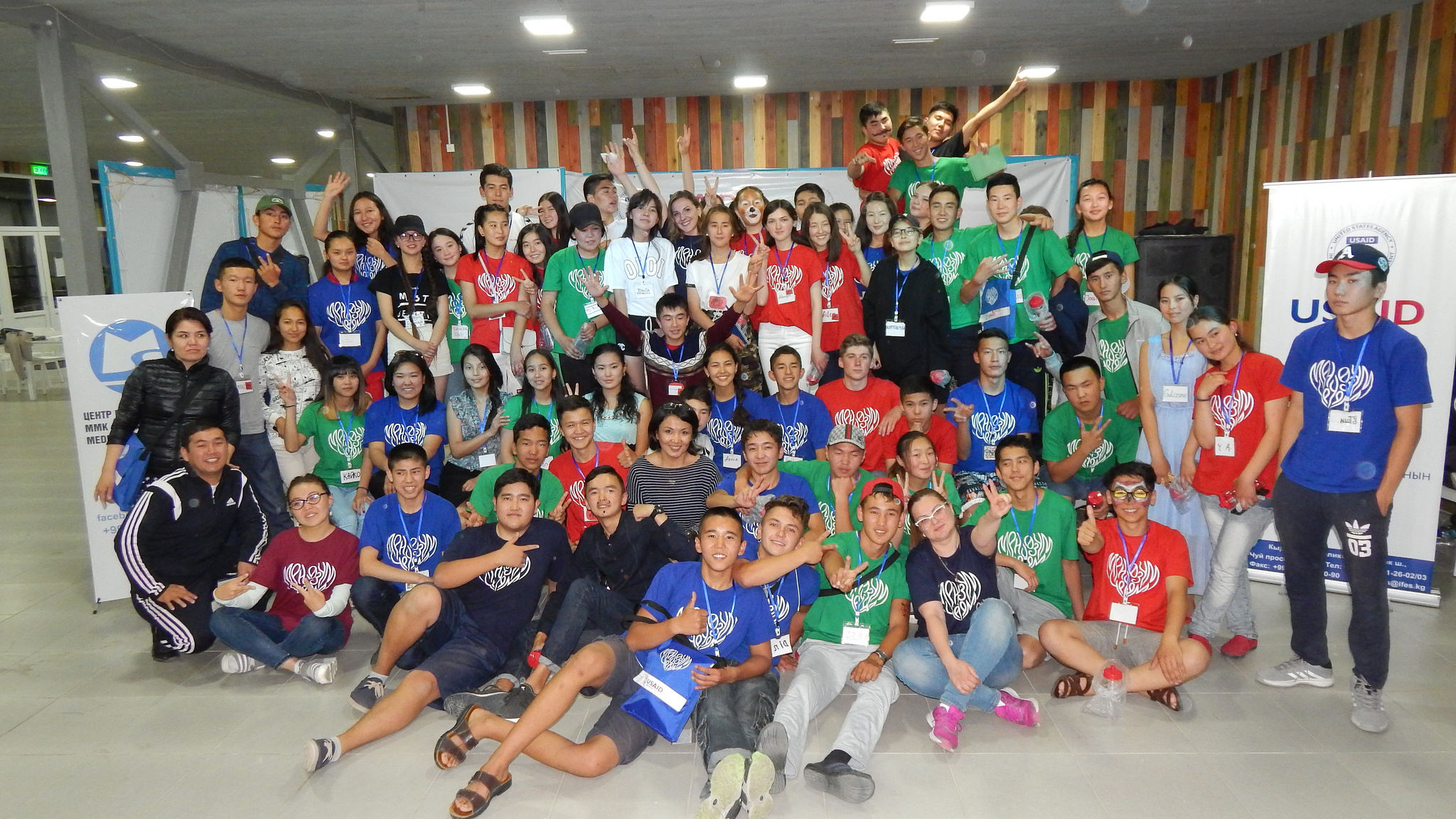
Introduction
To effectively make strategic adjustments in supporting a democratic, well-governed, and prosperous Kyrgyz Republic, and to better reflect youth priorities in the design of upcoming activities, USAID/Kyrgyz Republic requires a thorough analysis of the status and landscape of youth and youth initiatives in Kyrgyz Republic, the National Youth Policy, and youth development plans across the Kyrgyz Republic. Understanding the context of youth in the Kyrgyz Republic will directly benefit the refinement of the current CDCS, with an emphasis in the areas of human trafficking and human rights, civic participation and civil society strengthening, local governance, tuberculosis (TB), HIV, and other health services, education, and enterprise development.
USAID/Kyrgyz Republic has identified three Development Objectives (DOs) necessary to achieve the goal of a democratic, well-governed, and prosperous Kyrgyz Republic. These three objectives are mutually reinforcing; each is required to achieve the CDCS goal. As all citizens are better able to interact with government in an inclusive and accountable democracy (DO1), the legitimacy and effectiveness of the country’s nascent political and civil society institutions will grow. As the ability of governing institutions to better deliver services expands to include all segments of society (DO2: Improved service delivery and policies for all citizens), the environment and capacity for economic growth will improve. Similarly, with a stronger economy and empowered private sector (DO3: Accelerated growth of diversified and equitable economy), the Kyrgyz Republic’s ability to effectively mobilize revenues will increase and better enable service delivery.
About the Assessment
YouthPower Learning conducted research for the assessment in March and April 2019. Research methods used include 32 peer group discussions (PGDs) with 317 male and female youth ages 18-28; 52 key informant interviews in Bishkek and selected field locations with stakeholders from various donors, Government of the Kyrgyz Republic (GOKR) ministries and agencies, NGOs, and community-based organizations; and a desk review of over 100 documents on contemporary Kyrgyz Republic. After presenting key findings, the assessment concludes with promising programs and structures that promote PYD in Kyrgyz Republic with several examples, as well as recommendations for the future of PYD in Kyrgyz Republic. USAID will use these insights to adjust its future strategic approach.
Key Findings:
- The drivers of youth discontent, like high unemployment and low economic opportunities, that drove Kyrgyz youth to play a major role in the 2005 and 2010 revolutions continue to resonate.
- Youth voices need more influence with respect to their rights, especially within the courts, where no special procedures are employed or specified for the investigation of rape, child abuse, domestic violence, or other cases of child or gender-based violence.
- Gender inequality continues to manifest in many forms despite the Kyrgyz Republic signing several international human rights treaties related to gender that have generated progressive gender legislation and policies.
- Although nearly all Kyrgyz youth are functionally literate and most have completed a basic education, they perceive that the Kyrgyz education system does not adequately prepare them for work and other adult responsibilities.
- Health education, particularly around combatting tuberculosis and HIV, is one of the key factors affecting youth health outcomes.
Despite many challenges facing youth in the Kyrgyz Republic, there are causes for optimism. Kyrgyz youth are practical, hard-working young people who, despite the many obstacles confronting them, are determined to make a better life for themselves and their families. They strongly aspire to educational attainment, gainful employment, and are pleased to take advantage of training, volunteering, or internship opportunities. Appropriate, well-targeted, and coordinated investments will help build the necessary enabling environment to foster youth-inclusive development and provide Kyrgyz youth with the means needed to help build the economy and assume more of a leadership role in the country.
